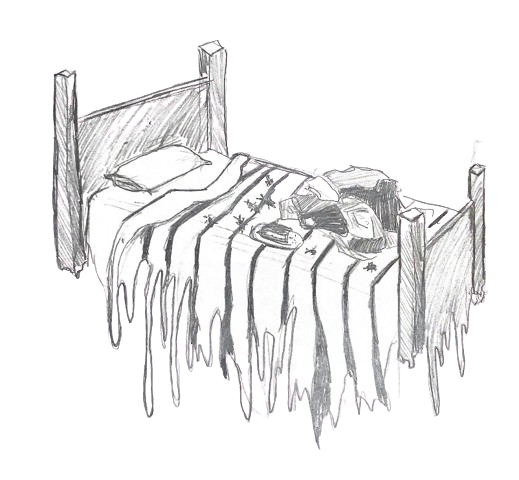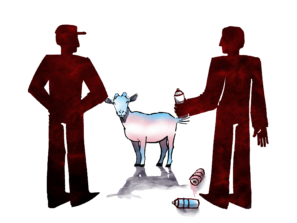
From our bodies to our brains, social media has us all rotten to the core. These apps have mastered the art of exploiting young users’ desires to fit in, capitalizing on the fact that many live in a bubble of self-pity — sometimes building this bubble themselves.
Society has even shifted from the term brainwashed to brain-rotted; not only are people devoid of any original thought, but they’re so mentally corrupt that their mindset can only be described as such.
Brain rot refers to the toll that internet content, usually nonsensical and low-value, can take on people who are chronically online. This will often be videos that contain extensive strings of buzz words, including “skibidi toilet” and “rizz.” Sure, by itself, it’s harmless enough — sometimes one just needs a mindless scroll.
“I don’t take [those videos] seriously,” said junior Dahlia Selig. “Some [are] kind of funny, [but] I don’t go searching for them. When they come up, it’s like Cocomelon, you don’t have to think about it. And in that way, it can be really nice, because it’s like, ‘Wait, who will win, the 1 million chickens or the Mongolian army?’”
While much of the content on social media may be taken lightly, there may be a darker side to some of the trends dominating these platforms, rooted in prejudices such as fatphobia. TikTok especially has both stigmatized and normalized conversations about weight. Month after month, there are new trends about every body type under the sun, and most recently, social media has deemed it acceptable to comment on people’s size — even, and sometimes especially, if inaccurate — as long as it’s executed creatively.
“Skinny people calling themselves fat just makes fat people feel worse about themselves,” said junior Benjamin Lee. “[When] I call myself fat, I don’t really think about how it makes [others] feel [until] I look back [on] the moment. I don’t think it’s [about] the body weight, it’s just how much I eat.”
Beyond body shaming, social media has also normalized unhealthy and sometimes self-destructive behaviors. A term known as “bed rotting” emerged in late 2023 and quickly gained traction within a couple of months. What originally started as a form of self-care, slowing down to rest in an ever-rapid world, and a way to reset after a demanding week, has begun to morph into an excuse for idleness. As a result, issues like poor time management skyrocket.
“Whenever I see reels relating to procrastination, I notice it tends to promote that,” said junior Darren Benavente. “It’s all these jokes about, ‘oh, I procrastinate until the night [an- assignment is] due,’ and they say how they got it all done. But [it’s] unhealthy behavior; that’s not what you should be doing.”
With the rise of casual body shaming and habits like bed rotting, people facing real issues are often invalidated, pushed aside by those who misuse the terms to fit in. This limits the amount of accurate content circulating the media about issues like binge eating disorder or depression.
“I don’t see much representation of [mental health online],” Benavente said. “But on the other hand, when discussed, it’s focused on the wrong things; this negative behavior is sometimes promoted [through] generalizations.”
While social media may be a powerful vessel to form communities and interact with like minds online, being informed while consuming content is essential. Moreover, it’s crucial to call out the usage of these negative, self-deprecating terms in order to decimate the perpetuation of stereotypes.
“I don’t think I’ve made a conscious effort to stop [calling people fat] but maybe after this article’s posted and I get a lot of hate, I will,” Lee said. “Backlash makes people stop.”
Challenging the cycles of self-destructive behavior promoted on social media begins with awareness and accountability — be big-minded not big-backed.





